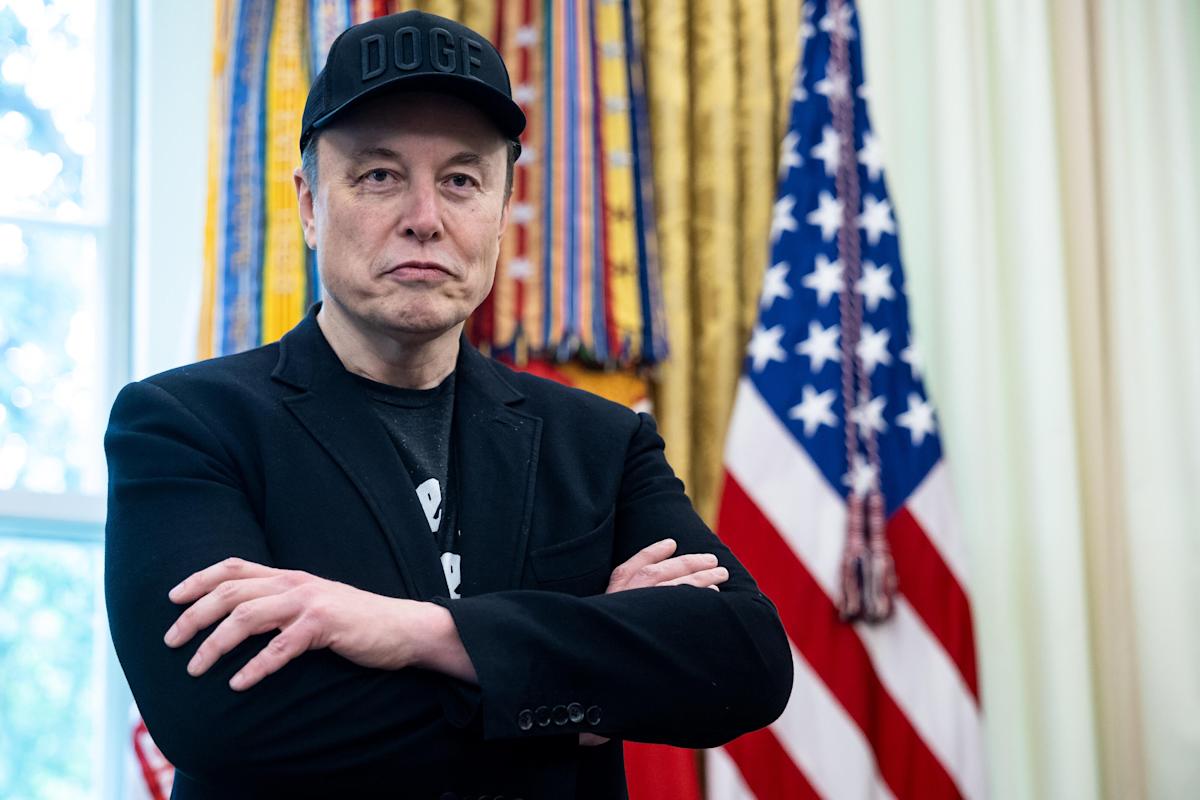Elon Musk is widely recognized as an electric car pioneer. Yet the Tesla CEO has also single-handedly chilled the automaker’s sales, according to a recent study by researchers at Yale University.
Public controversy over Musk’s role as leader of the White House’s Department of Government Efficiency (DOGE), as well as his acquisition of social media platform Twitter (now known as X) in 2022, reduced Tesla’s sales by up to 1.2 million vehicles over a three-year period, the researchers estimated in a working paper published this month by the National Bureau of Economic Research that aimed to measure the effect of Musk’s politics on Tesla’s business.
“This study highlights just how impactful a CEO’s partisan actions can be,” the researchers wrote. “We show that Elon Musk, the world’s wealthiest person and CEO of the most valuable automaker by market capitalization, had a dramatic effect on Tesla sales due to his politically partisan activities unrelated to Tesla’s core business.”
Musk’s adverse impact on Tesla’s business became visible starting in mid-2022, with sales especially dropping in Democratic-leaning states and counties, the study further concludes.
“Musk’s actions antagonized his most loyal customer base, for, as we show, Democrats are far more likely than Republicans to purchase a Tesla,” the researchers said.
The study’s lead author is energy and environmental economist Kenneth Gillingham, who is the senior associate dean of academic affairs at the Yale School of the Environment. His research focuses on consumer behavior and policy in the transportation and energy sectors.
Musk announced in May that he was pulling back from DOGE, which the Trump administration formed to shrink the federal government and cut spending.
Tesla didn’t respond to a request for comment on the paper’s findings.
Musk’s foray into politics and emergence as a prominent adviser to President Trump early in his second term raised the entrepreneur’s visibility but alienated some potential Tesla customers, Mike O’Rourke, chief market strategist at Jonestrading, previously told CBS News.
Tesla last week reported third-quarter earnings of $1.4 billion, down 37% from the year-ago period, citing higher costs and tariff-related headwinds. Tesla’s vehicle sales fell 1% in 2024 despite a 7% increase in EV sales across the car industry.
Tesla’s stock fell 27% in February, a period of time that coincided with Mr. Trump’s first full month in the White House. But the shares have rebounded and are now up roughly 14% on the year, with investors betting on growth in the company’s fledgling robotaxi business, autonomous driving technology and plans to build AI-powered humanoid robots.
